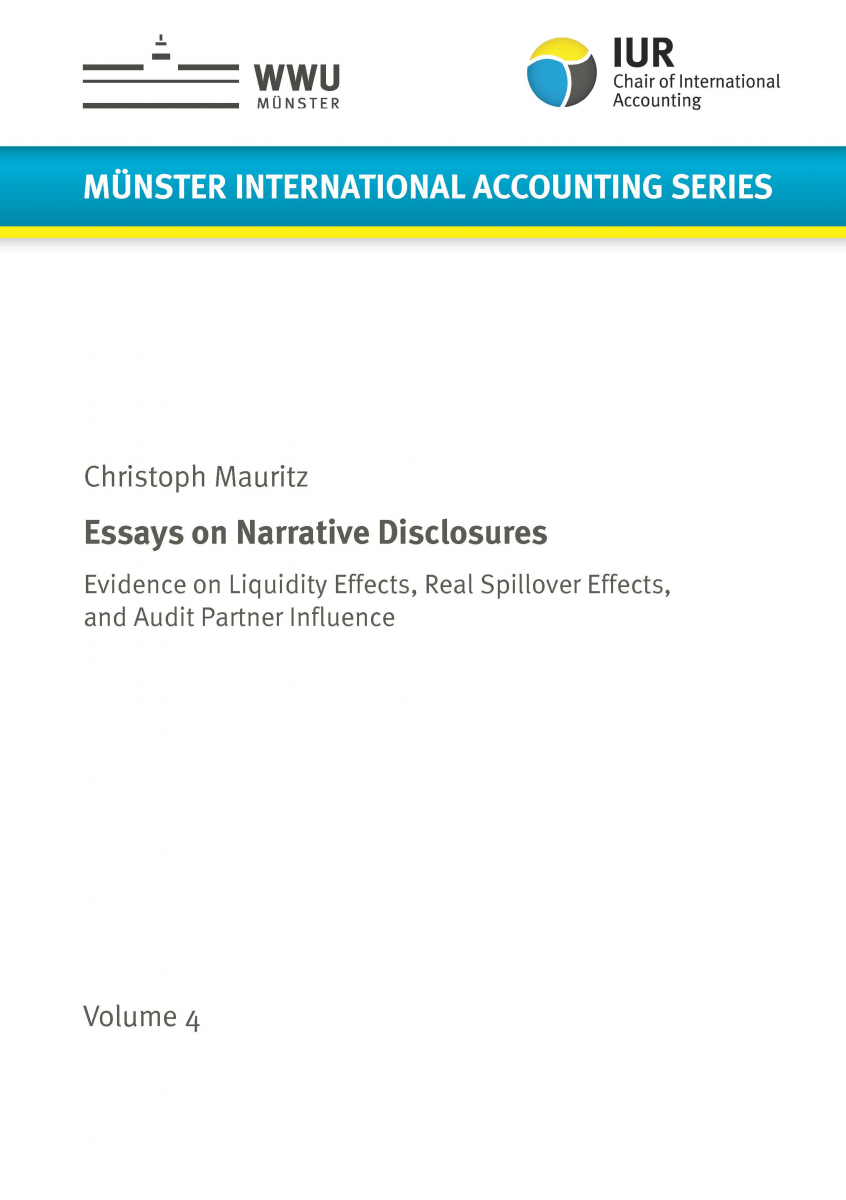Volume 4 - Christoph Mauritz
Essays on Narrative Disclosures
Evidence on Liquidity Effects, Real Spillover Effects, and Audit Partner Influence

Narrative disclosures are an important element of a firm’s corporate reporting. These types of disclosures provide context to financial statements and elaborate on the course of a firm’s business. They also serve as a vehicle to publish non-financial and forward-looking information. Two important developments in the context of narrative disclosures are the regulation of corporate social responsibility reporting and the assurance of narrative disclosures. This thesis addresses these two developments in three papers and examines liquidity effects of CSR disclosure regulation (study 1), real spillover effects of CSR disclosure regulation (study 2) and the influence of auditors on their clients’ narrative disclosures (study 3).
The first study (“Liquidity Effects of Mandatory Corporate Social Responsibility Reporting”) examines whether the introduction of mandatory CSR reporting in Europe increases the liquidity of affected firms’ shares. The CSR directive in Europe mandates certain public firms that exceed specific size thresholds to publish CSR information. Using these thresholds in a regression discontinuity design, the study finds that mandatory CSR reporting provides new, relevant information to investors resulting in higher liquidity of the affected firms’ shares. Hence, in line with the regulatory objective, mandatory CSR reporting seems to increase the transparency of regulated firms.
The second study ("Real Spillover Effects to Private Firms") examines if the regulation of the CSR directive creates spillover effects to unregulated firms. Thereby it addresses regulatory concerns that such a regulation has effects beyond the directly regulated firms. The results suggest that requiring large companies to report on CSR matters leads them to encourage their suppliers to operate more sustainably, hence indirectly affecting private firms CSR activities. While these indirect effects may come at the cost of worse financial performance for private firms, this study does not document such an adverse effect.
The third study ("The Role of Individual Audit Partners for Narrative Disclosures") explores the extent to which auditors are involved in the preparation of narrative disclosures of their clients. Based on a large sample of German management reports, which are analyzed using methods of automated textual analysis, the study provides evidence that auditors influence their clients' management reports. The results further show that a higher involvement of auditors is associated with higher quality narrative disclosures.
Collectively, the three papers of this thesis provide important insights into the implications of certain developments in the area of narrative disclosures for firms. This is particularly important for the work of standard setters in further developing the regulation of narrative disclosures.


